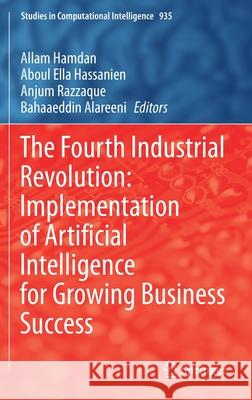The Fourth Industrial Revolution: Implementation of Artificial Intelligence for Growing Business Success » książka
topmenu
The Fourth Industrial Revolution: Implementation of Artificial Intelligence for Growing Business Success
ISBN-13: 9783030627959 / Angielski / Twarda / 2021 / 483 str.
The Fourth Industrial Revolution: Implementation of Artificial Intelligence for Growing Business Success
ISBN-13: 9783030627959 / Angielski / Twarda / 2021 / 483 str.
cena 724,58
(netto: 690,08 VAT: 5%)
Najniższa cena z 30 dni: 693,97
(netto: 690,08 VAT: 5%)
Najniższa cena z 30 dni: 693,97
Termin realizacji zamówienia:
ok. 16-18 dni roboczych.
ok. 16-18 dni roboczych.
Darmowa dostawa!
Kategorie:
Kategorie BISAC:
Wydawca:
Springer
Seria wydawnicza:
Język:
Angielski
ISBN-13:
9783030627959
Rok wydania:
2021
Wydanie:
2021
Numer serii:
000318395
Ilość stron:
483
Waga:
0.86 kg
Wymiary:
23.39 x 15.6 x 2.69
Oprawa:
Twarda
Wolumenów:
01
Dodatkowe informacje:
Wydanie ilustrowane











